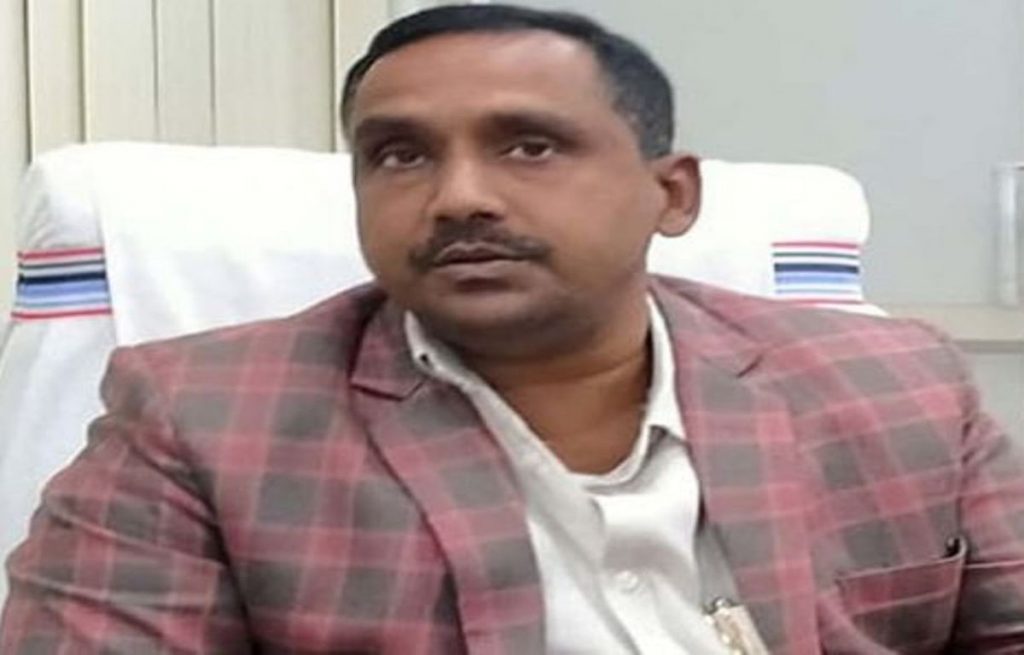Ranchi: Community participation is key to the success of the filariasis elimination programme and we must work together to make Jharkhand Filariasis and Kala-azar free said State Health Minister Banna Gupta during the launch ceremony of Mass Drug Administration rounds for Filariasis elimination in the state.
Starting from 1 December, the state will undertake booth and door-to-door campaign to administer Triple-drug therapy (IDA) to members of the community to ensure filariasis prevention. The minister simultaneously launched an awareness-building campaign for filariasis and Kala-azar, featuring popular film and television actor Manoj Bajpayee.
The Minister stated that these rounds will be undertaken by following the guidelines of Covid-19, in seven districts – Palamu, Latehar, Seraikela, Jamtara, Chatra, Dumka and Godda between 1 and 15 December. In these districts, the prescribed dose of three drugs – Ivermectin, DEC, Albandazole – will be administered free-of-cost by health workers at booths and individual homes in the districts.
He along with Additional Chief Secretary and Mission Director, National Health Mission flag off Mass Drug Administration round by consuming anti-filarial medicines and urged every one to consume these drugs in front of drug administrators.
He also asked health department to widely share audio-visual messages by Manoj Bajpayee with the people through inter-departmental coordination. These messages are to be disseminated through diverse platforms to ensure key information related to these diseases can reach the public.
On the occasion, Additional Chief Secretary (ACS), Health, Medical Education and Family Welfare Department, Jharkhand Arun Kumar Singh underlined the threat that filariasis poses to the community. He also reiterated the state government’s commitment to eliminate vector-borne diseases like filariasis, to which end these seven filariasis-affected districts were being provided free-of-cost preventative medication.
Trained health workers will be at designated booths, Community Health Centers, Primary Health Centers, Sub Health Centers, Anganwadi Centers, Ward Offices, Schools, Colleges and Technical Institutions, on the remaining days of IDA Rounds will be door to door distribution of medicines, he said adding that the department will ensure every safety measure as medicines should not be taken on an empty stomach and will not be given to children below 2 years of age, pregnant women and seriously ill persons.”
Rapid Response Teams will be present on the spot with essential medicines to deal with any emergency during drug intake. The senior officer highlighted that Filariasis was a challenge that hinders global welfare by affecting the economy.
He further added that through coordination at state and district levels, the drive to end filariasis is being done according to a well-planned strategy to successfully rollout the IDA program. “This will ensure that the activities under the program are carried out with quality and there is no shortage of anti-filarial drugs and human resources during the program, he said, adding that the program will be reviewed daily at the state level and every problem arising during the program will be resolved immediately. Our aim is to ensure that 100 percent of the beneficiaries consume anti-filarial medicines this time, he saus
Jharkhand’s State Program Officer, Vector Borne Disease Control Program, Dr Anil Kumar, said that filariasis spreads through mosquito bites. According to the World Health Organization (WHO), filariasis is one of the leading causes of long-term disability worldwide this infection, which spreads in any age group, damages the lymphatic system and if not prevented, it causes abnormal swelling in the body parts. People suffering from chronic diseases such as hydrocele (swelling of the scrotum), lymphedema (swelling of organs) and chyluria (milky white urine), due to filariasis, often bear the burden of social stigmatization. This affects their livelihood and ability to work.
Jharkhand has 5077 patients of lymphedema and 3723 patients of hydrocele, of whom 2845 (77%) patients have had successful surgeries. Additionally, 21,181 filariasis patients were given Morbidity Management and Disability Prevention (MMDP) kits free of cost. Regarding the new initiatives being taken in the program, he said that this campaign has been increased from one week to 15 days, due to which the workload of our drug administrators has reduced from 20 to 25 houses per day. A total of 6,643,933 beneficiaries have been targeted for drug administration via 26,576 trained drug workers in 38 CHCs. A total of 2,658 supervisors have also been appointed to monitor this programme, and 45 rapid response teams have also been formed to deal with emergencies, if any.
At the launch, Dr Bhuvnesh Pratap Singh, Mission Director, NHM along with other government officials development partner representatives participated this event in-person whereas Deputy Commissioners of nine districts were present virtually.

